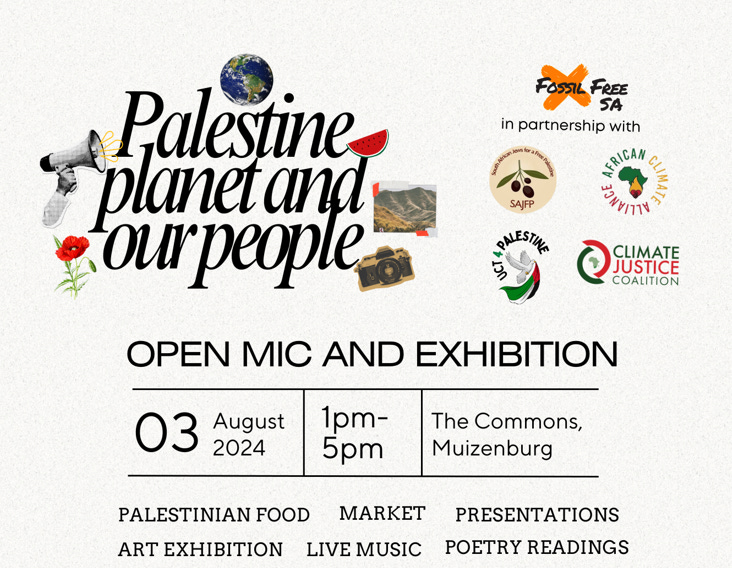Gaza webinar "devastates and inspires"
The rebuilding of Gaza could be a lightning rod for sustainable development across the region.
This was one of the illuminating statements made at our 11 July webinar on the intersection between genocide and ecocide in Gaza, which was “simultaneously devastating and inspiring”, as FFSA Coordinator and Director David Le Page noted while moderating the event, which you can watch here.
We heard talks by Tara van Ryneveld, the climate policy co-ordinator at the South African Faith Communities’ Environment Institute; Nina Lakhani, senior climate justice reporter at The Guardian US, and Fadi Quran, who is senior director at Avaaz, an alternative energy entrepreneur in Palestine, and a policy analyst.
Interestingly, our subscriptions to this newsletter soared when we announced the event, and it was very well attended. There’s an even greater appetite out there for insights on this issue than we had realised!
We could write a thesis about this webinar. Instead, we’ll give you some of our favourite quotes from key moments:
“We have the opportunity to ensure that the rebuilding of Palestine is 100% green,” said Fadi. “That is not a figment of my imagination; it’s very possible because Palestine has desert, sun all year, mountains with wind, and sea. We could use those resources to create a fully renewable energy space. Most Palestinians want that, because they understand the risk of being dependent on (outside) power sources. Coal, gas and oil belong to the occupiers. We could then have Jordan and Lebanon move in that directly and broadly change the political dynamics of the region… weaking the US’s hegemony.
“It’s realistic to connect Palestinian liberation with ending the climate crisis.”
The ecocide accompanying the genocide − 70 000 tons of bombs have been dropped on Gaza, Fadi reminded us − includes devastating Gaza’s water supplies. Nina has written about the Israeli military’s tactics such as pouring poison and concrete into water wells and cutting irrigation pipes, all part of what she described as “part of the colonial project destroying Palestinian’s right to water, food and electricity.”
Fadi envisaged that Palestine will “be the hope of the world no matter which way things go.” He pointed out that Gazans struggled to access adequate safe water even before the war. “How do communities survive without water? I hope that we solve the climate crisis, but because Israel is imposing man-made starvation, thirst and degradation, and we’re still surviving, the world will look to Palestine as an example of how to solve the climate crisis.”
Nina has written several other stories on the war on Gaza, including the extent of the greenhouse gas emissions caused by Israel’s assaults, the huge climate cost that will come with rebuilding Gaza, and more broadly, the massive carbon emissions linked to world conflict and military forces. The emissions are not counted by the United Nations, so there are no plans to curtail them.
In her talk, Tara gave context: “The system and logic of capitalism and colonialism have intertwined to cause the climate crisis we have today… and that’s the system at work we see in Gaza and elsewhere around the world. We can’t expect these systems that created the climate crisis to pose solutions to it.
“If we are truly to create a just future, have to call out these systems where we see oppression at work.”
Fadi agreed with her statement that “it’s wrong to think can end environmental devastation without ending system of political domination that goes hand in hand with it.”
Curious or confused? you can listen to the YouTube video here.


